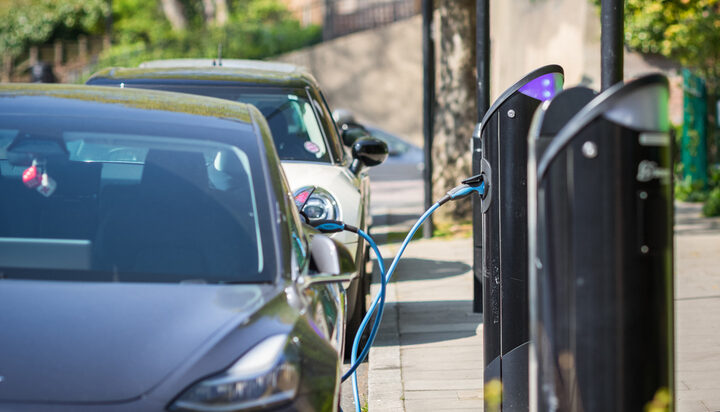
The number of electric vehicles (EVs) on UK roads has reached more than 748,000, representing a 71% increase in electric use.
That’s according to new data published by the Society of Motor Manufacturers and Traders (SMMT), claiming that increasing petrol prices have been a driving factor.
Despite the jump in EV-use, new vehicle registrations dropped, with car ownership levels also decreasing for the second year in a row – only the second time in 100 years that the UK has experienced this.
The fall is linked to supply chain disruptions from both the pandemic and Ukraine War, with 1.65 million new cars registered in the country last year.
The report states that this drop in brand-new purchases has led to more old cars being on the road than ever – with 28.7% being more than 12 years old.
On top of 720,000 electric cars, 26,990 electric vans, 993 buses and 313 trucks are also on the roads.
EVs now account for one-in-five new registrations, however, only make up one-in-50 cars actually on the road.
The report reveals that 95.7% of the cars in the UK are still petrol and diesel, representing the mammoth challenge ahead of convincing the public to take-up electrics.
London and the Southeast accounts for 33.1% of EV registrations, with England having far more plug-in cars than Scotland, Wales or Northern Ireland.
The SMMT stresses that better EV infrastructure and awareness is needed throughout the rest of the UK to prepare the country for the 2030 ban on new petrol and diesel cars.
More needs to be done to appeal to the everyday driver, the report also claims; as currently close to 60% of EVs are registered to companies and not private buyers.
SMMT Chief Executive Mike Hawes said: “With fleet renewal essential to net zero, we must build consumer confidence in the economy and for drivers, confidence in the charging infrastructure to get the transition into top gear.”